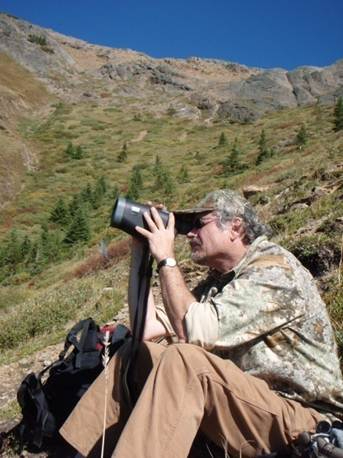Mark Boyce receives 2021 J. Gordin Kaplan Award
Andrew Lyle - 26 November 2021
Preserving the biodiversity of the natural world is of increasing importance in our fast-changing world. Mark Boyce has made this work his career, and is a recipient of a 2021 J. Gordin Kaplan Award for Excellence in Research, recognizing his research as a population ecologist with a focus on conservation.
“The 2021 United Nations Climate Change Conference highlighted that what humans have done to the ecology of our planet is of increasing priority to the global community,” said Boyce, professor in the Department of Biological Sciences. “Trying to understand the complexity of life on earth is exactly how I’ve spent my entire career, conducting research to help us ensure the future of wildlife and healthy ecosystems.”
The J. Gordin Kaplan Award for Excellence in Research is one of several internal awards administered by the Office of the Vice-President (Research and Innovation) and recognizes outstanding research contributions by faculty across campus each year.
“I am particularly honoured to be recognized for the J. Gordin Kaplan award given his many contributions including the founding of the WISEST program supporting women in scholarship, engineering, science and technology, and his advocacy for education and world peace,” said Boyce.
Boyce’s primary focus of research has been on relating habitats to wildlife populations and developing quantitative methods for doing so. “I am grateful for all of the support that I’ve had at the U of A,” said Boyce of the recognition. “Special thanks to our Associate Chair (Research), Lisa Stein, who led my nomination. The Department of Biological Sciences, the Faculty of Science, and the Alberta Conservation
Association have made my career in Alberta highly rewarding.”
Building back biodiversity
For the past five years, Boyce has worked alongside several collaborators at the U of A on a study of grazing systems on the Northern Great Plains of Canada. The team is exploring how these systems can be used to enhance biodiversity as well as carbon sequestration and storage.
Boyce has also been involved in the study of large mammals in Yellowstone National Park since 1977, and wrote computer programs to anticipate the consequences of wolf recovery for Yellowstone — helping to pave the way for the release of wolves from Alberta to Yellowstone in 1995.
“This has been the most celebrated ecological experiment in history with huge ramifications for the role of large carnivores in structuring the ecology of natural ecosystems,” said Boyce. “I have supervised several graduate students studying the consequences of wolf recovery both in Yellowstone and in Alberta. I owe everything to the fantastic graduate students who make things happen in my lab.”
